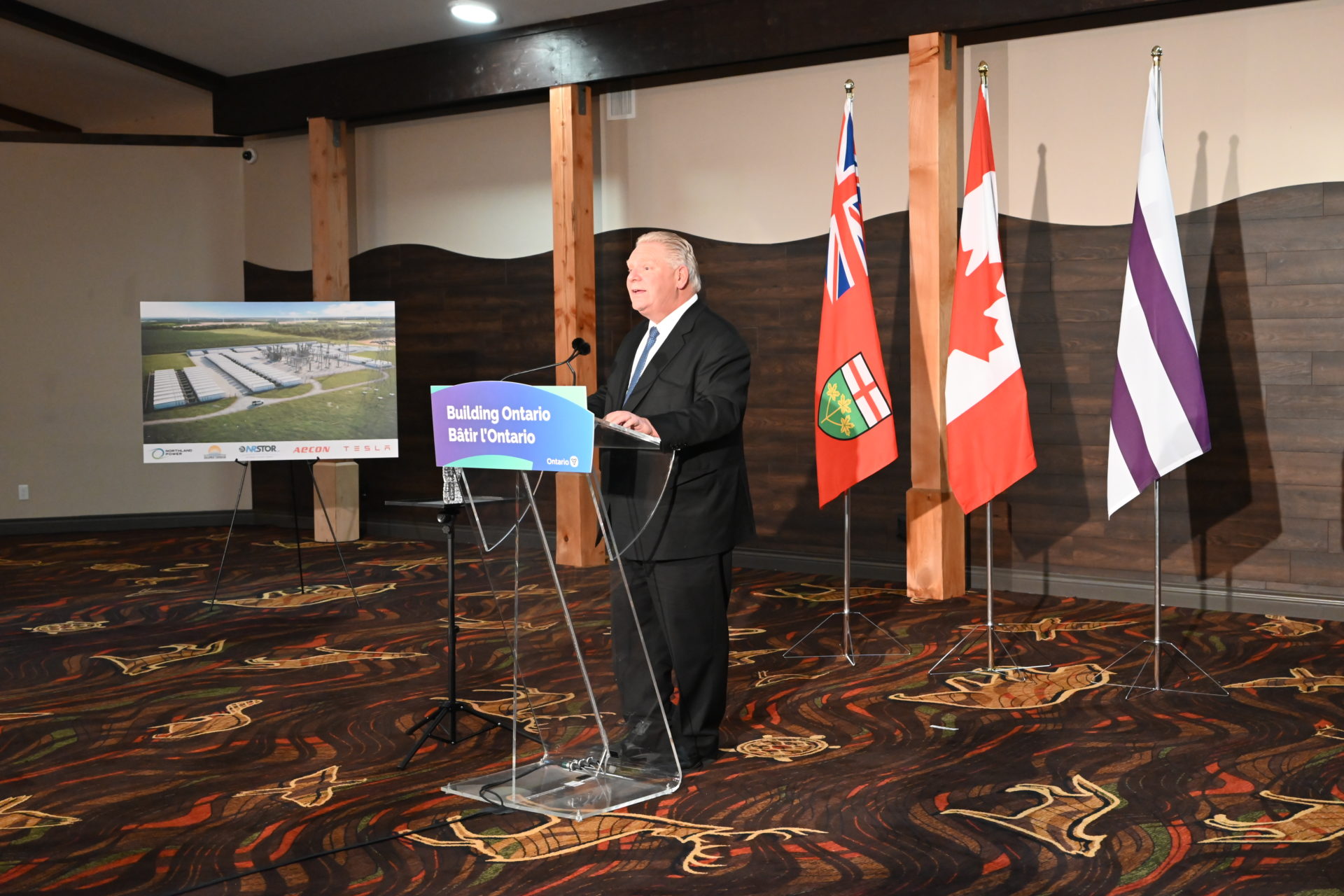The federal and provincial governments announced that they are working together to build the largest battery storage project in the country on Friday, February 10, 2023.
Ontario Premier Doug Ford and Deputy Prime Minister Chrystia Freeland made the announcement in Ohsweken on Friday morning.
The 250-megawatt (MW) Oneida Energy storage project is being developed in partnership with the Six Nations of the Grand River Development Corporation, Northland Power, NRStor and Aecon Group.
The province has directed the Independent Electricity System Operator to enter into a 20-year deal with the project as part of the push for a more clean energy supply.
The battery storage project will be located in Haldimand County in Jarvis, and will consist of installing lithium batteries on a 10-acre plot of land in order to absorb surplus electricity from the Ontario power grid when demand is low, and return it to consumers when needed during peak periods.
The Oneida Energy storage project is expected to reduce emissions that will be the equivalent of taking up to 40,000 cars off the road.
“It will more than double our province’s energy supply storage resources and will provide enough electricity to power a city approximately the size of Oshawa,” said Ford.
The project has been in development since 2018 and is currently under construction and set to begin operating in 2025. Ottawa is investing $50 million more in addition to the $170 million in funding from the Canada Infrastructure Bank to help develop the project.
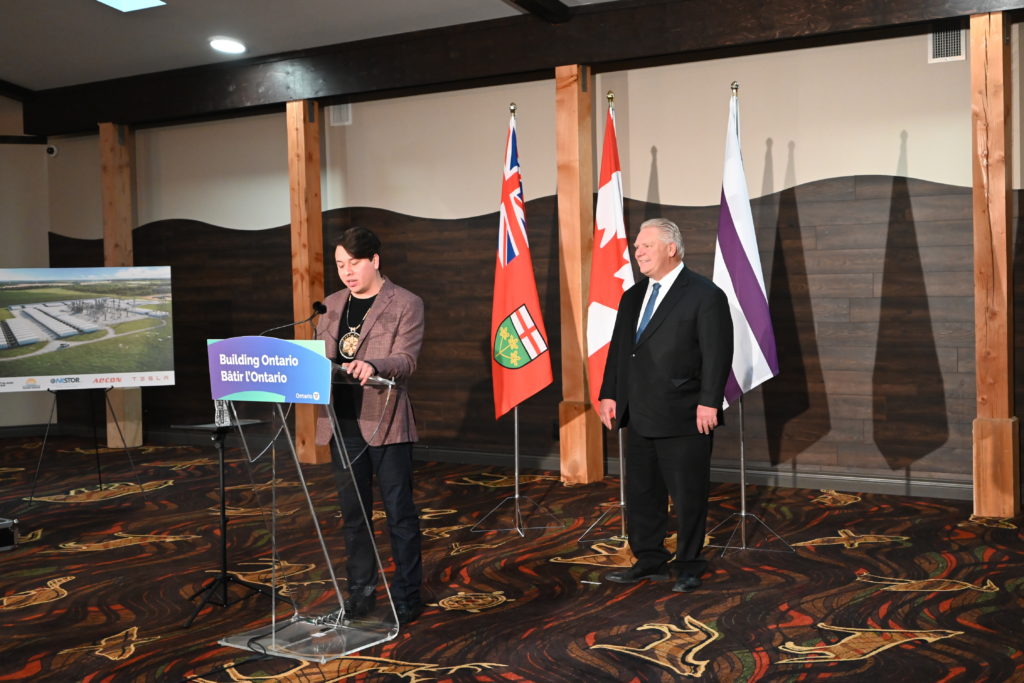
Six Nations officials say it is involved in the project and that it will take 97% of local construction workforce to build it.
“Six Nations is always happy to partner on projects that align with culture values, respect of the land, as well as responsible stewardship of the environment,” said Six Nationals elected Chief Mark Hill. “Today’s announcement is one way in which we are doing our part to create a sustainable future, reducing emissions, as well as providing a reliable source of green energy for the benefit of all of our families. It will also bring socioeconomic development to our community and provide a boost to the well-being of our entire nation.”
Freeland spoke about the project and the opportunities it will provide for the community of the Six Nations of the Grand River, as well as Canada as a whole.
“This is about indigenous prosperity and indigenous people taking control of their lives and their economy,” she said. ‘It’s about Canada’s clean economy future and our clean economy present. The jobs we are creating for today and the future because that’s where the world is going.”
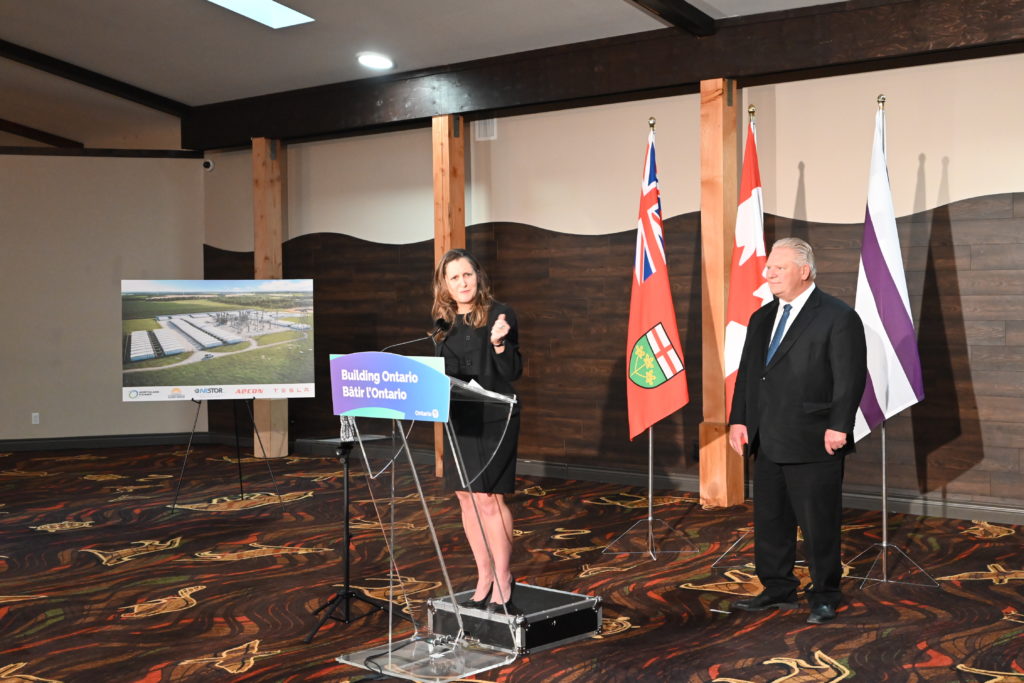
She later spoke about the project being a chance for reconciliation between Canada and its Indigenous communities.
“And I really want to recognize Chief Hill and Six Nations for their leadership,” she said. “Reconciliation is a priority for our government – I think it’s a priority for all Canadians. I think we recognize that Canada’s an amazing country, but we have an original sin and reconciliation is the path forward. I absolutely believe that Indigenous prosperity built through projects like this one is an essential part of the path to reconciliation.”
While the project is set to be an act of collaboration between the government and the Six Nations community, not everyone is pleased about the announcement.
Traditional leadership members, the Haudenosaunee Confederacy Chiefs Council say they were not made aware of the announcement taking place and were not involved in the decision-making process. Upon their arrival, they were turned away from the building.
“The elected band council does not have the express written, verbal, sanction or permission from the Confederacy Council to be talking on issues pertaining to our lands,” said Colin Martin, co-chair of Haudenosaunee external relations committee and police liaison for the Haudenosaunee Confederacy Chiefs Council. “That’s the sole authority of the Confederacy Council. Our biggest concern is obviously the environment because that’s what we stand for as Haudenosaunee people. We don’t know what effects this deal is going to have on the environment.”
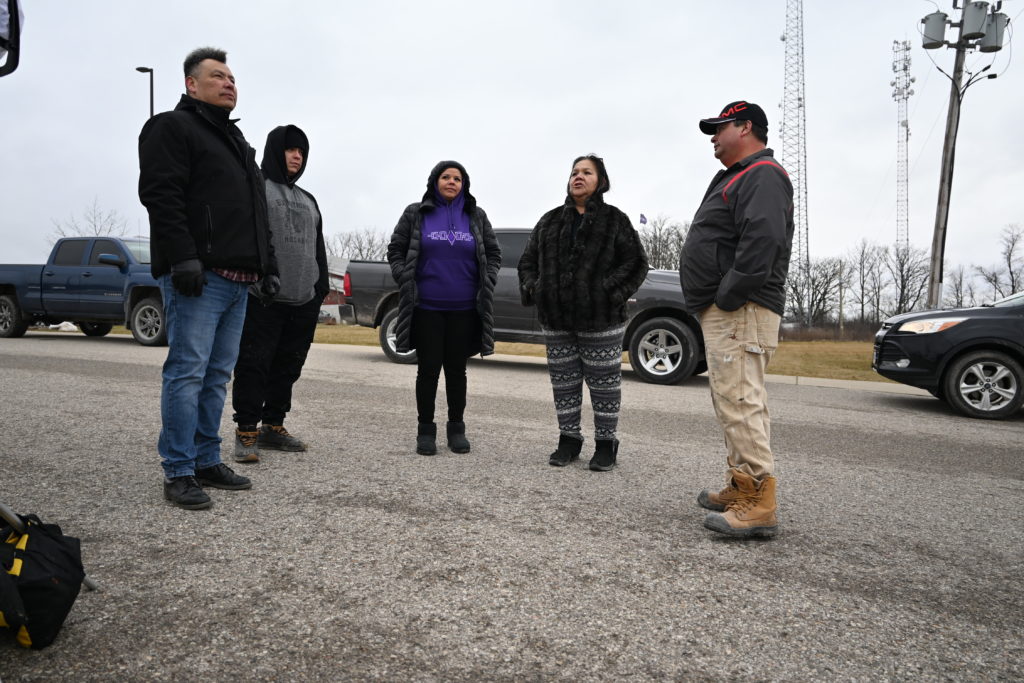
Deyohowe:to, the chief of the Cayuga Snipe Clan, says the project won’t happen.
“We’ve never heard of this before. No one came to the community and said this was going to happen and for the community we are not going to let that happen,” said Deyohowe:to.
Chief Hill insists the Haudenosaunee Confederacy Chiefs Council (HCCC) was given every opportunity to be involved and hopes they can all get together in one room to discuss the matters internally.
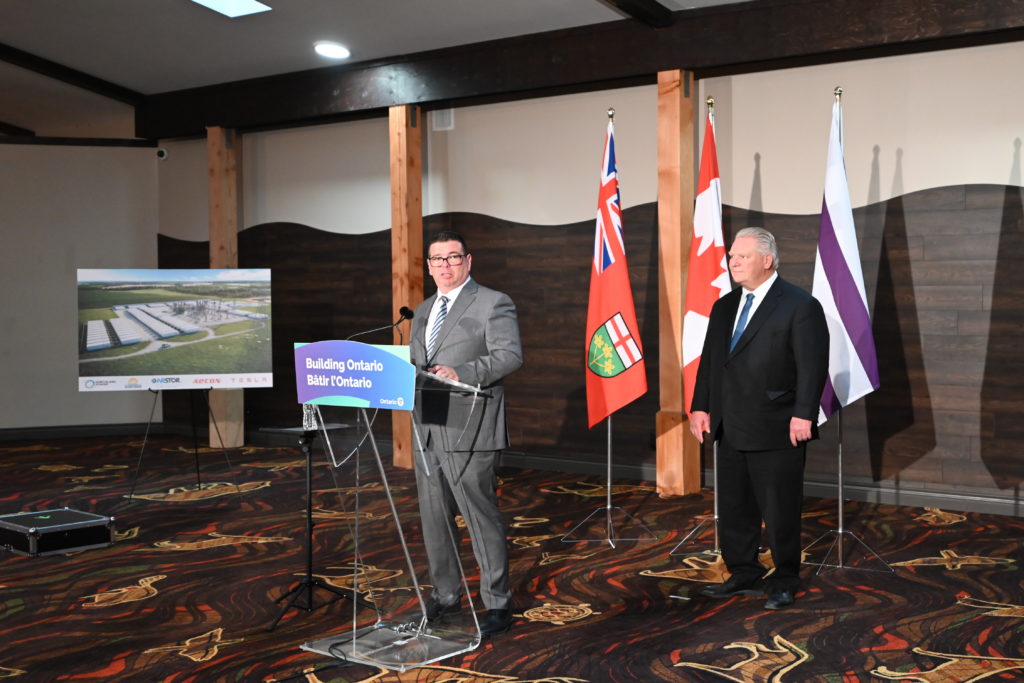
Kimberly De Jong’s reporting is funded by the Canadian government through its Local Journalism Initiative.The funding allows her to report rural and agricultural stories from Blandford-Blenheim and Brant County. Reach her at kimberly.dejong@brantbeacon.ca.
